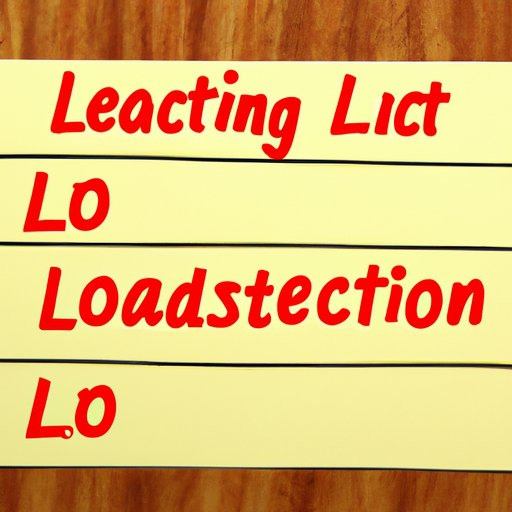Introduction
LDL or low-density lipoprotein is a type of cholesterol that carries cholesterol to the cells that need it in the body. However, having a high level of LDL in the bloodstream can lead to the accumulation of cholesterol in the arteries, increasing the risk of heart disease and stroke. Taking action to lower LDL levels is essential to maintain a healthy heart.
Diet
A diet high in saturated fat can lead to high levels of LDL in the bloodstream. To lower LDL levels, it is recommended to consume foods that are low in saturated fat and high in fiber. Foods such as fruits, vegetables, whole grains, low-fat dairy, lean meats, and fish are great options to reduce LDL levels and improve heart health.
It’s recommended to limit your intake of foods that are high in cholesterol such as red meat, egg yolks, and processed foods. These foods can cause a significant increase in LDL levels. Another way to reduce LDL levels is to consume healthy fats such as nuts, olive oil, and avocados.
Incorporating more fiber into your diet can also help reduce LDL levels. Foods high in soluble fiber such as oatmeal, beans, and fruits can help reduce LDL levels in the bloodstream.
Exercise
Engaging in regular physical activity is essential to improve heart health and lower LDL levels. Cardiovascular exercises such as running, walking, and cycling are great options to lower LDL levels naturally. Exercise can also help increase HDL or “good” cholesterol in the bloodstream, which helps remove LDL cholesterol from the body.
It’s recommended to engage in at least 30 minutes of moderate-intensity exercise most days of the week. Simple things like taking the stairs instead of the elevator or going for a walk after dinner can help increase physical activity levels.
Limit Alcohol Consumption
Alcohol consumption can increase LDL cholesterol levels in the bloodstream, leading to an increased risk of heart disease and stroke. To lower LDL levels naturally, it’s recommended to limit alcohol consumption to no more than one drink per day for women and two drinks per day for men.
Lose Weight
Being overweight or obese can lead to high LDL levels in the bloodstream. Maintaining a healthy weight through regular exercise and a healthy diet is essential to lower LDL levels and improve heart health naturally. A modest weight loss of just 5-10% of body weight can help reduce LDL levels significantly.
It’s recommended to focus on consuming a balanced diet with reduced calorie intake and increasing physical activity levels to achieve a healthy weight.
Quit Smoking
Smoking can lead to an increase in LDL levels in the bloodstream due to the release of chemicals in cigarettes. Quitting smoking can help improve overall heart health and lead to a reduction in LDL levels naturally.
It’s important to speak to a healthcare provider or seek support to quit smoking, and resources such as nicotine patches or gum are available to help.
Conclusion
Lowering LDL levels is essential in maintaining a healthy heart and reducing the risk of heart disease and stroke. Engaging in regular physical activity, maintaining a healthy weight, quitting smoking, limiting alcohol consumption, and consuming a healthy diet low in saturated fat and high in fiber are all natural methods to lower LDL levels without medication. Lifestyle modifications must be adopted to improve overall heart health.
By making these lifestyle changes, individuals can improve heart health and reduce the risk of heart disease and stroke naturally.
(Note: Is this article not meeting your expectations? Do you have knowledge or insights to share? Unlock new opportunities and expand your reach by joining our authors team. Click Registration to join us and share your expertise with our readers.)
